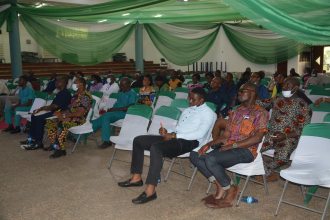EfD-MaK Policy Brief on Changes in Lake Victoria's Hydrology, Water Quality and Livelihoods
KEY MESSAGES
Lake Victoria Basin is facing a number of challenges:
KEY MESSAGES
Lake Victoria Basin is facing a number of challenges:
This paper analyses the possibilities for sustainable land use management at farm level to preserve the tropical rainforest in the Lindi region, Tanzania. It investigates the implication of agricultural production, in particular a high valued sesame production on household deforestation in Kilwa district, in Lindi region.

EfD researchers have studied the effects of a method of rice cultivation that can increase crop productivity and requires less water and fewer seeds. The study took place in Kilombero, a major rice…

Concerned by the debilitating effect of food insecurity on Nigerians, the Resource and Environmental Policy Research Centre (REPRC) Environment for Development (EfD) Nigeria, University of Nigeria has…
To adapt is to survive. However, sub-Saharan Africa, although highly dependent on agriculture, is vulnerable, most affected, with low-adaptive capacity.
Effective climate adaptation in sub-Saharan African agriculture will require coordination across multiple scales of governance. Decision-makers from local to national scales will be tasked with planning under conditions of high uncertainty, often with minimal data. Participatory scenario planning is a method for devising adaptation strategies under high uncertainty, and we hypothesized that it could also be used for identifying systemic, inclusive, and transformative adaptation options at the community scale, and for highlighting opportunities for cross-scalar collaboration.